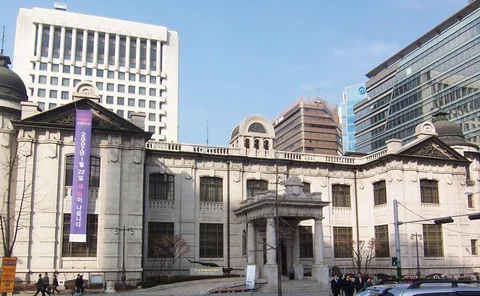Research
ECB paper finds fiscal targets are useful for forecasting
Ex-ante fiscal targets can convey useful information to forecasters despite the possibility of bias, researchers find
RBI paper explores challenges in public debt management
Research identifies a ‘narrow investor base’ as one hurdle and considers how to encourage greater participation from retail investors in the market for government securities
Icelandic paper looks for early-warning signals across past crises
Working paper identifies six clusters of financial crises in the country since 1875; finds macroeconomic variables give a ‘more robust warning signal’ than financial alternatives
Bank of Canada paper flags risk of spillovers from emerging to developed economies
Researchers show how a search for safe assets could transmit instability to developed economies as capital flows out of emerging markets
Lobbying softens regulatory treatment of distressed banks in US, paper finds
Under-capitalised US banks are less likely to be rigorously supervised if they have exercised political or regulatory influence, a working paper published by the ECB finds
NBIM report urges stock exchanges to prepare for next phase of development
Technological and regulatory changes have led to faster, more fragmented markets, and stock exchanges need to adapt if they are to keep up; latency race to zero is a ‘dead end’, says fund
ECB researchers examine flight to safety during sovereign debt crisis
Working paper tracks geographical distribution of capital flight, finding different movements by intra-eurozone and external investors; movements ceased when OMTs were unveiled
Spanish paper puts crisis legacy into context
Working paper suggests long-run trends in population and productivity growth could hamper the ability of policy-makers to address the legacy of the crisis
ECB paper models joint default risk with fat tails
Researchers reject normal distribution in favour of one with fatter tails, find ‘unprecedented’ tail risks in 2011-12 fell sharply after the OMT announcement
Norges Bank paper outlines forecasting method for big data
Researchers aim to forecast US stock market and economy using a Bayesian non-parametric model, with a dataset large enough that computing power becomes a problem
Market expectations respond to contractionary shocks, Chilean paper argues
Monetary expectations in major eurozone economies are responsive to contractionary shocks but not expansionary ones, a paper published by the Chilean central bank argues
BIS paper captures financial shock using five DSGE models
Authors from the Federal Reserve find even models with a common core produce very different estimates of the spillovers of a financial shock to the real economy
Bundesbank research warns of risks from rising intraday interest rates
Discussion paper finds intraday rate rose from zero to around 60 basis points after 2008 and sovereign debt crises; researchers suggest it is reflecting a liquidity premium
BIS paper models optimal response to unconventional shocks
Authors examine how macro-prudential policy ought to respond to news shocks and regime changes in global liquidity, finding ‘significant variation’ in optimal policy reactions to shocks
Bundesbank research tracks changing financial cycle
Discussion paper seeks to establish the ‘empirical regularities’ of the financial cycle using an econometric model, finding the cycle has grown longer and more severe over time
BoJ paper finds emerging markets struggled to protect themselves from QE
Foreign exchange interventions and capital flow policies did little to shield emerging markets from the spillovers caused by quantitative easing in the US
ECB article examines lack of real convergence in eurozone
Article in latest bulletin points to three factors behind the lack of sustainable real convergence among the countries in eurozone since the creation of the monetary union
Bank of Korea research tots up damage from capital flows
Researchers attempt to measure the impact of foreign financial flows on the real economy, finding the type of flow matters for growth, but all types increase volatility
BoJ paper builds model of secular stagnation
Authors find scrapping the idea of a single representative household allows New Keynesian models to portray secular stagnation – and a high inflation target fixes the problem
Bank of Korea researchers dig into disaggregated data on inflation targeting
Adopting inflation targeting in Korea lowered the mean, volatility and persistence of inflation throughout the country, but a look at disaggregated data reveals more about transmission
Bundesbank paper identifies two ‘clusters’ of credit cycles
Researchers find there is no common credit cycle among European and US economies, rather two distinct groups emerge with cycles converging within
IMF paper offers Uruguay advice on money supply targeting
Move to new monetary policy target has proved ‘challenging’ IMF researchers note, offering advice on how to make the framework more effective
Belgian paper examines ‘crisis-proof’ services
Working paper finds ‘significant’ differences between the elasticity of goods exports and services exports with respect to GDP growth during the crisis
Dutch paper contradicts ‘conventional view’ on fiscal adjustments
Working paper cannot rule out that increasing revenues is just as effective at bringing about fiscal adjustment as spending cuts



















